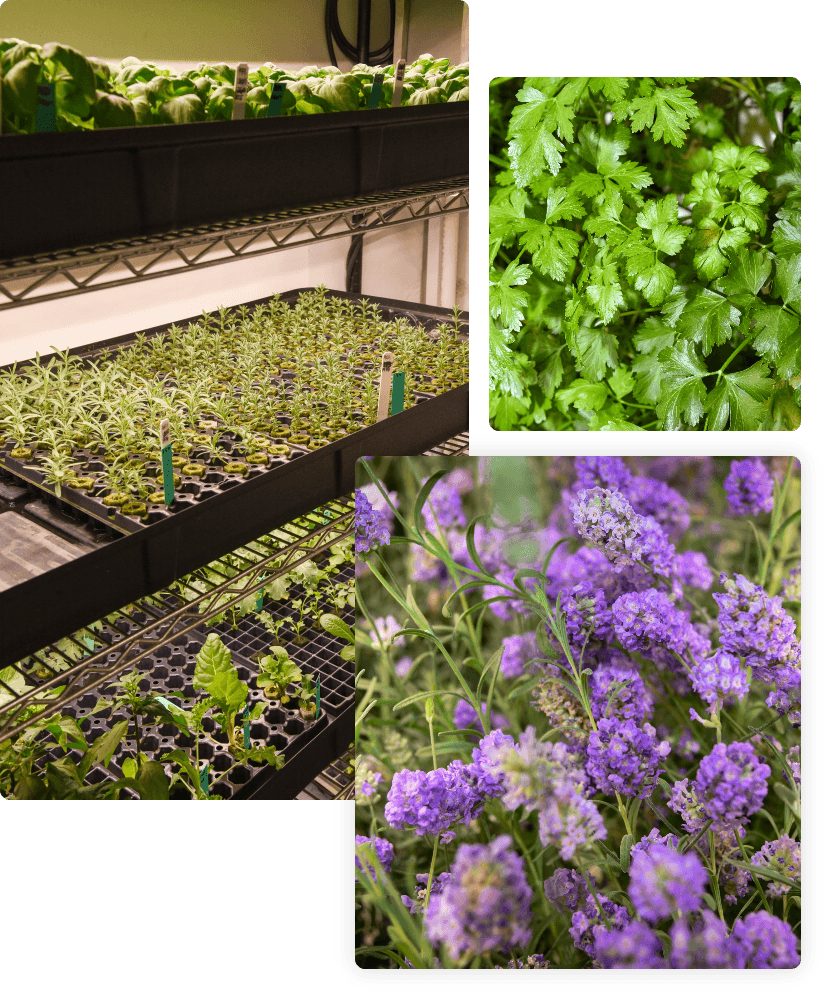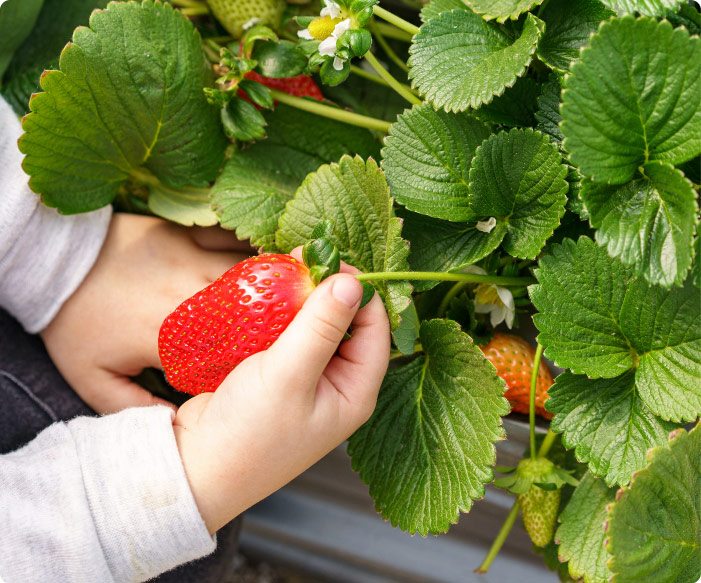How localized farming supports your environmental and social impact metrics
Meeting today’s Environmental, Social, and Governance (ESG) commitments requires more than promises — it demands verifiable, measurable impact. Distributed agriculture — growing food locally using advanced indoor farms — is emerging as a critical strategy for organizations striving to meet their ESG goals. At NuLeaf Farms, we enable this transformation by delivering smart, localized food systems powered by our proprietary Leaf & Root automation platform.
Our technology-driven indoor farms provide real-time data on essential ESG metrics: water conservation, carbon footprint reduction, land use efficiency, local job creation, workforce training, and community food security. For food retailers, service providers, real estate developers, and institutional buyers, investing in or sourcing from these farms means integrating sustainability directly into your supply chain — with transparent, auditable outcomes.
Environmental benefits of distributed agriculture are profound. By growing food near its point of consumption, these farms drastically reduce transportation emissions and spoilage. Using hydroponic systems managed by Leaf & Root™, they cut water use by up to 90% compared to conventional farming and optimize energy consumption through intelligent climate controls. This sustainable resource use supports corporate net-zero targets and climate resilience initiatives.
From a social perspective, localized farms create meaningful economic opportunities — from skilled jobs to training programs — especially in urban, remote, or underserved communities. NuLeaf’s automation tracks these social impact metrics, helping you demonstrate your commitment to community well-being and equitable growth.
Governance advantages come from the ability to monitor and report ESG performance continuously and accurately. Leaf & Root delivers comprehensive, auditable data that supports regulatory compliance, enhances stakeholder trust, and strengthens corporate accountability.
In addition to these sustainability benefits, our automated systems improve operational efficiency by automating critical processes like nutrient delivery and climate management. This drives productivity, reduces waste, and scales with your evolving needs — making distributed agriculture not only an ESG solution but a smart business decision.
Supporting distributed agriculture through NuLeaf Farms and Leaf & Root positions your organization at the forefront of sustainable food innovation. It turns ESG commitments into transparent, data-backed achievements — proving that sustainable food systems can drive positive impact locally and globally.
Local food systems are reshaping how we think about food security, sustainability, and economic vitality. By producing food close to where it’s consumed, distributed agriculture reduces reliance on long, complex supply chains that are vulnerable to disruption from climate events, labor shortages, and geopolitical challenges. For food buyers — including grocers, foodservice operators, and institutions — this means fresher produce, shorter delivery times, and more reliable supply, all of which enhance customer satisfaction and operational resilience.
At the same time, local food systems generate meaningful community benefits. They create jobs, support workforce training, and stimulate local economies, particularly in underserved or remote areas. Access to fresh, nutritious food improves public health outcomes and strengthens social cohesion by reconnecting people with how and where their food is grown. These community-level impacts also contribute to broader ESG goals around social equity and economic inclusion.
By investing in or sourcing from NuLeaf Farms’ indoor agriculture projects, organizations gain a direct stake in this virtuous cycle — strengthening their supply chains while fueling positive, measurable impact in the communities they serve. It’s a partnership that fosters sustainability, resilience, and shared prosperity.


Indoor farming minimizes the ecological footprint of agriculture through reduced water usage, elimination of synthetic pesticides, and optimized resource efficiency. Its controlled environments enable year-round production, shorter supply chains, and decreased transportation emissions.
From a social perspective, indoor farming improves food security and accessibility by bringing fresh produce closer to urban areas, reducing reliance on long-distance transportation and minimizing waste.
It creates job opportunities, supports economic development, and ensures higher yields and consistent quality, enhancing food affordability and availability. Indoor farming combines technology and sustainable practices to promote inclusivity, improve access, and support community well-being.

Indoor farming’s efficient water management contributes to sustainability, particularly in water-scarce regions, and promotes a more water-conscious approach to food production.
Indoor farms require much less land compared to traditional agriculture for the same amount of production. This allows for efficient land use and minimizes the need for large expanses of arable land.
Establishing indoor farms in urban areas or in close proximity to consumers reduces the need for long-distance transportation, shortening the supply chain and minimizing time between harvest and consumption.
By operating in controlled environments, indoor farms can minimize crop loss due to pests, diseases, and adverse weather conditions, leading to higher yields and a lower likelihood of crop spoilage.
Effective governance can promote resource-efficient practices within indoor farming operations. Regulations and guidelines can encourage the use of advanced technologies and best practices for water conservation, energy efficiency, and waste reduction.
A well-governed indoor farming sector can attract investment and foster market growth. Clear regulatory frameworks and industry standards provide a level of predictability and stability that encourages investors to support indoor farming ventures.
Regulatory bodies and industry associations can promote research into new technologies, crop varieties, and cultivation methods that improve yields, resource efficiency, and environmental sustainability, fostering continuous improvement within the industry.
Indoor farming operations often serve as educational hubs, offering tours, workshops, and programs to schools and local communities. Governance that supports such initiatives helps raise awareness about sustainable agriculture, nutrition, and the importance of local food production.
Food Security
Year-round production of fresh fruits, vegetables, and herbs decreases reliance on imports, reducing the vulnerability of the food supply chain to disruptions like extreme weather events or transportation issues.
Economic Development
Indoor farming operations require a skilled workforce to manage various aspects of plant growth, technology, and logistics. As a result, indoor farming can generate jobs in both urban and rural areas.
Community Engagement
Educational programs and partnerships can raise awareness about sustainable agriculture and nutrition. Connecting people to the food production process can foster a sense of community involvement.
Improved Nutrition
The controlled environment of indoor farming can lead to year-round availability of certain crops, ensuring a consistent supply of fresh, nutrient-rich food even in regions with challenging climates. This contributes to improved overall well-being in the community.